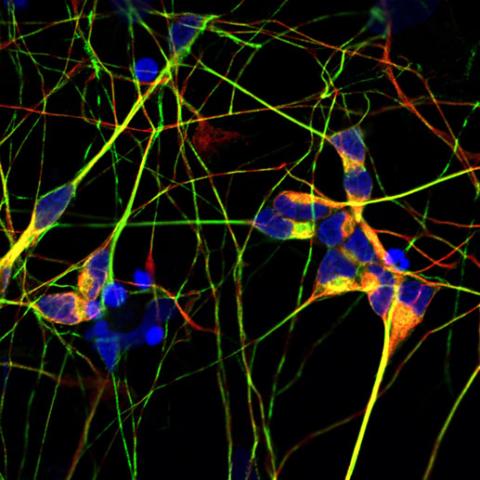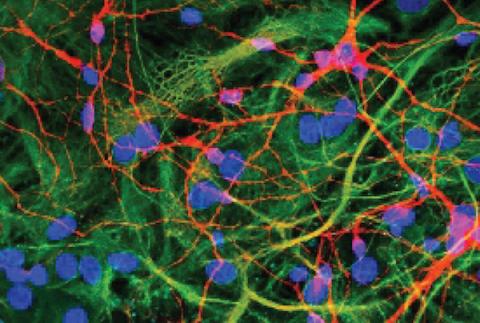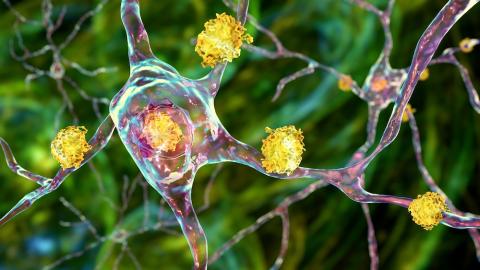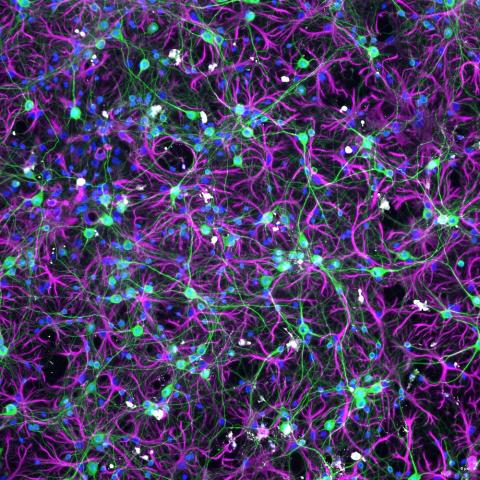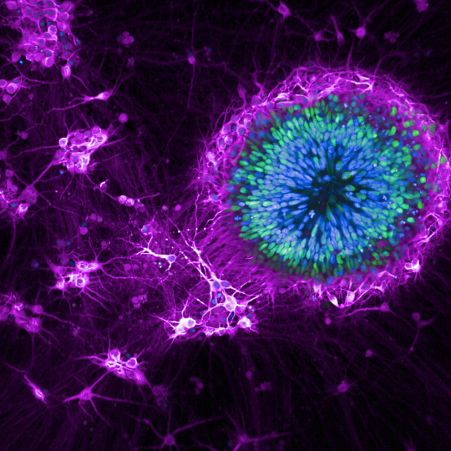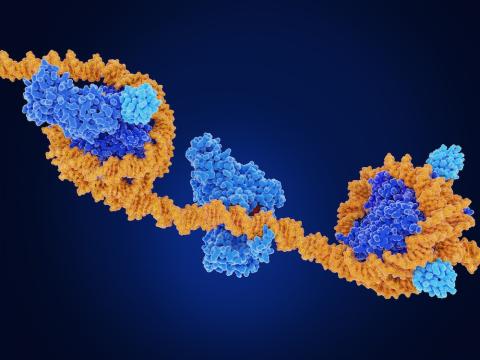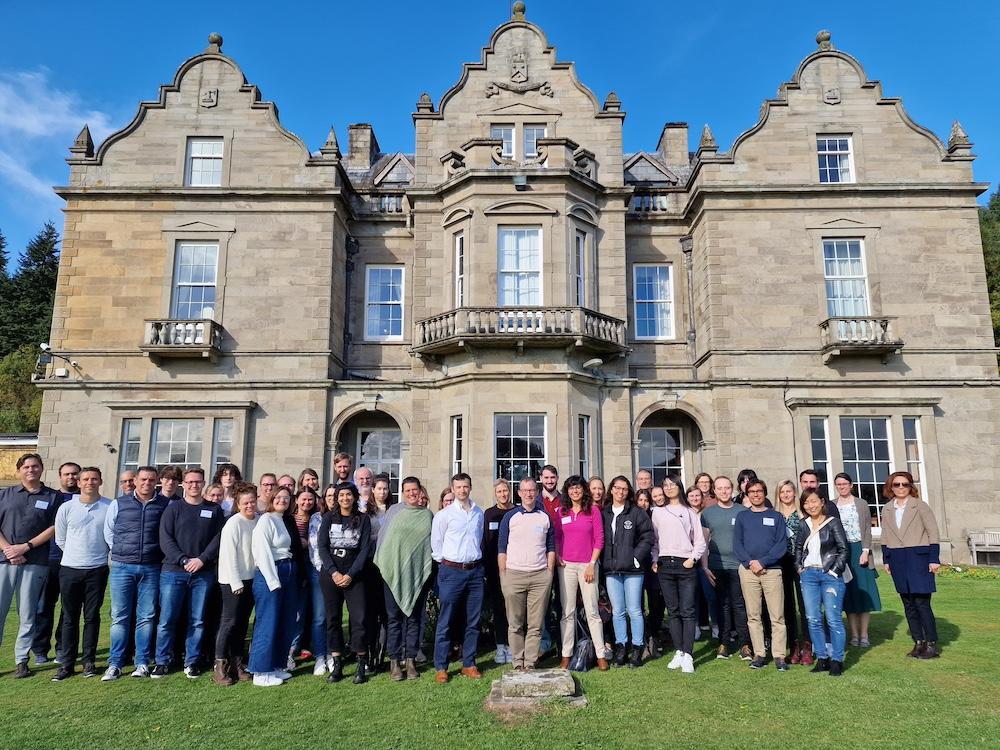
The DNA Repair, Inflammation, and Neurodegeneration Workshop in 2022.
Ageing is a significant risk factor across the neurodegenerative disease spectrum. It is a multifaceted process with several key hallmarks including cellular senescence, epigenetic alterations, chronic inflammation, and vascular changes. The UK DRI Cellular Processes of Ageing Thematic network has a particular focus on two processes affected by ageing – DNA repair and protein aggregation. There are several co-dependencies and synergies between protein aggregation and unstable DNA, and both pathologies are causes and consequences of cellular ageing.
DNA repair mechanisms become less efficient in ageing, leading to DNA damage and genomic instability. This can have a particularly severe effect in neurons as they are post-mitotic and accumulate more DNA damage. Several neurodegenerative conditions are caused by repeat expansions, for example CAG trinucleotide repeats in the HTT gene in Huntington’s disease and hexanucleotide repeat expansions in the C9ORF72 gene in ALS and frontotemporal dementia. UK DRI researchers aim to understand the mechanisms underlying repeat instabilities and their repair, and translate this into novel therapeutic avenues.
Protein aggregation underlies almost all neurodegenerative conditions and is also a feature of many aged brains without overt disease. UK DRI researchers have expertise in several proteins implicated in neurodegeneration including tau, amyloid-beta, alpha-synuclein, huntingtin, TDP-43, and others. Network members aim to understand the decline in proteostasis and develop therapies to target this in age-related conditions through state-of-the-art methodologies such as super resolution microscopy, biophysical and biochemical techniques, and multi ‘omic approaches.
The key priorities of the Cellular Processes of Ageing Thematic network include:
- Understanding the mechanisms of DNA repair and protein aggregation in ageing and age-related neurodegeneration
- Elucidating the interaction between DNA damage and protein aggregation
- Translating our research into therapeutics to target these processes

